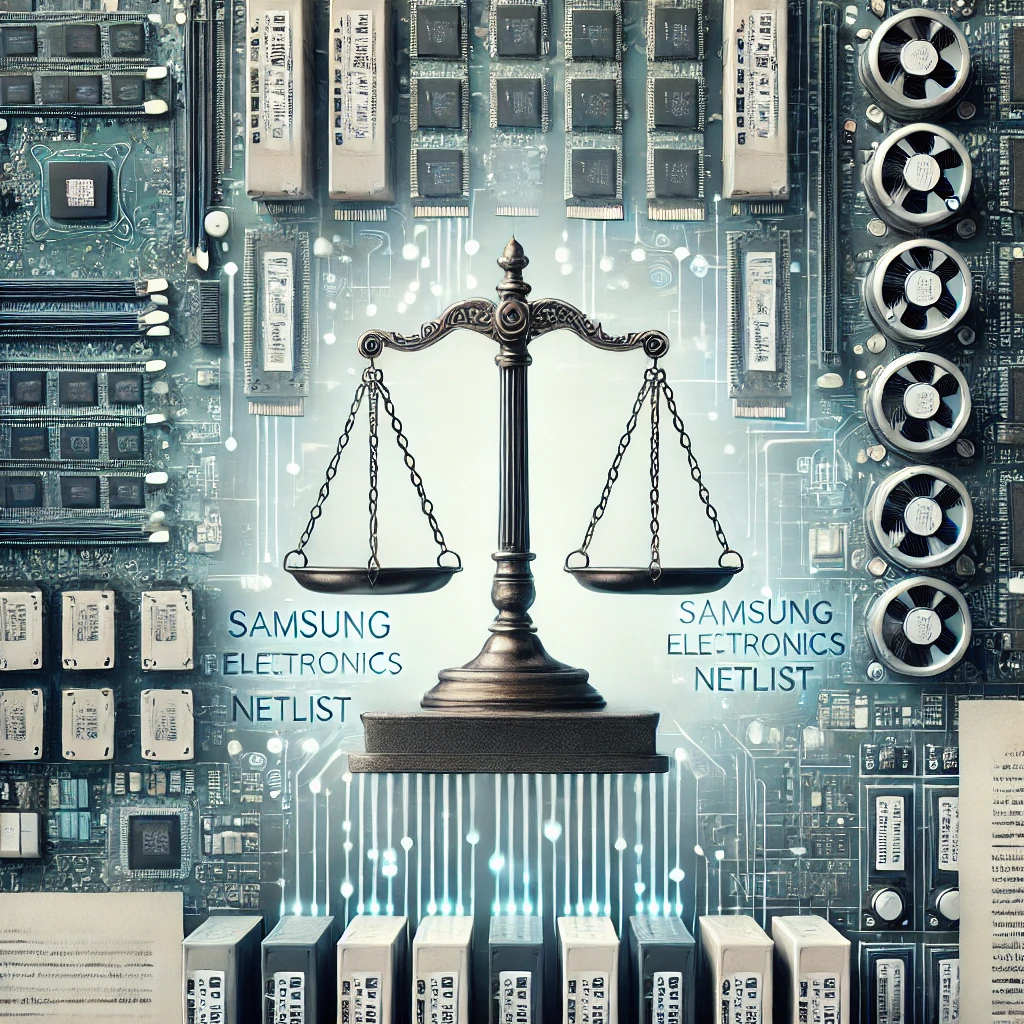The news of a federal jury in Texas ordering Samsung Electronics to pay approximately 18.2 billion yen in damages for infringing Netlist’s patent has highlighted the risks and impacts of patent litigation faced by modern technology companies. This article explores the realities of the patent wars reflected in this ruling and examines the challenges companies must consider when advancing technological development.
Background of the Patent Infringement Issue
Netlist patented innovative technology to improve the power efficiency of memory modules, claiming it was used in Samsung Electronics’ memory modules for cloud servers. Samsung, on the other hand, argued the invalidity of the patent and emphasized differences in its own technology. Such disputes are not uncommon in the high-tech industry, where the interpretation of patents and technological similarities are frequently contested in court.
Impact of Patent Litigation and Corporate Strategies
Patent litigation affects companies in various ways, including:
Financial Losses
In this case, the damages amount to $118 million, but if the court determines “willful infringement,” the amount could triple. Past cases have shown that Netlist has secured substantial damages from other companies, underscoring the importance of risk management regarding patents.
Impact on Brand Image
A ruling of patent infringement can influence public perception of a company’s technological capabilities and ethical stance. Amid intensifying global competition, intellectual property strategies are not just legal challenges but core issues tied to corporate sustainability.
Impact on Technological Innovation
An increase in patent litigation might slow down technological development as companies become more cautious. Additionally, cases like Netlist suing large companies with its patents could transform the monetization model for innovative technologies.
Challenges in the Patent System
This case also sheds light on issues within the patent system itself.
Debates Over Patent Validity
As Samsung has argued, the scope and validity of patents can be subject to wide interpretation. How courts and patent offices establish standards greatly affects the competitive environment across the industry.
Compliance with FRAND Obligations
Samsung contended that Netlist failed to meet its obligation to offer fair licensing under international standards. Disputes regarding FRAND (Fair, Reasonable, and Non-Discriminatory) obligations are critical for ensuring fairness in patent usage.
Future Outlook and Countermeasures
Netlist has previously won similar lawsuits, and this ruling serves as a warning to Samsung Electronics and other major corporations. To avoid patent wars, companies should consider the following measures:
Strengthening Technological Originality
Pursuing innovative ideas that are less likely to face similar technological competition is crucial.
Enhancing Patent Portfolios
Companies must strengthen patent acquisition and management to negotiate cross-licenses more effectively.
Collaboration Between Legal and Technical Teams
Establishing a system where legal and technical departments collaborate to assess the risks of patent infringement is essential.
Conclusion
This ruling reaffirms the risks and potential of patent litigation. In the high-tech industry, patents are not merely legal assets but central to corporate strategy. Companies must seize this opportunity to accelerate innovation while restructuring their intellectual property strategies. It is hoped that such legal outcomes will drive industry-wide growth and foster a fair competitive environment.
